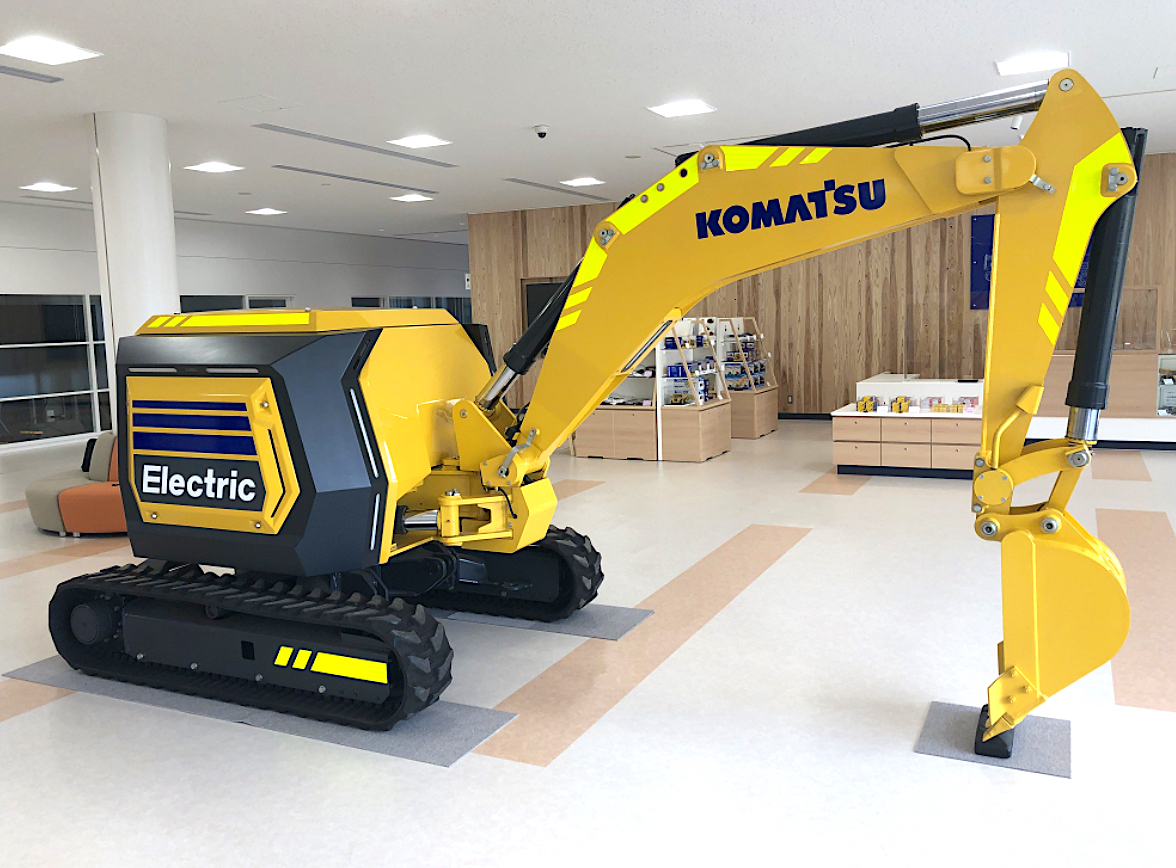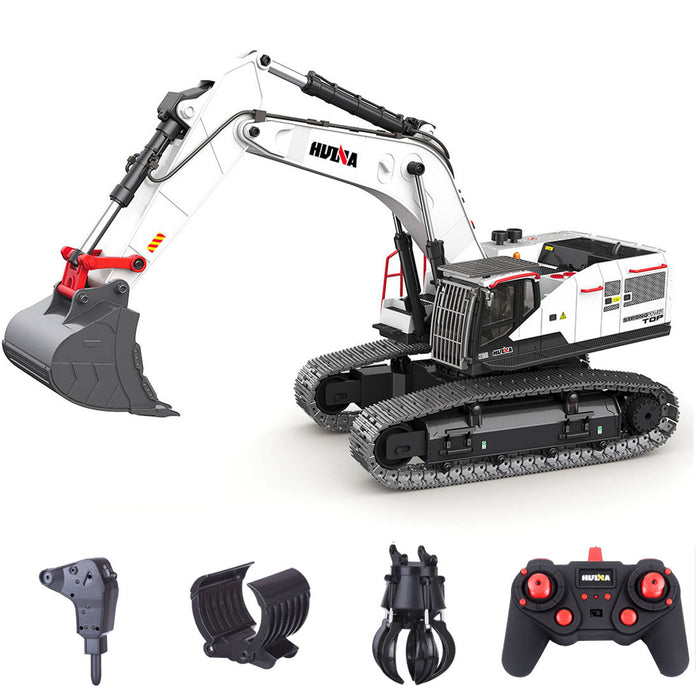Comprehending Exactly How Excavator Functions and Its Influence On Effectiveness
Excavators play a crucial function in building and construction and mining operations, relying upon an intricate interaction of mechanical and hydraulic systems. Their capability to execute a variety of tasks rests on both their design and the innovation incorporated within. Recognizing these elements can considerably influence functional performance and efficiency. As improvements proceed to improve the sector, one have to think about exactly how these modifications will certainly influence future methods and performance.
The Fundamentals of Excavator Mechanics

The Duty of Hydraulic Equipments in Excavators
At the heart of excavator operation lies the hydraulic system, which plays a pivotal duty in powering the equipment's features and activities. This system utilizes pressurized hydraulic liquid to transfer energy, allowing different activities such as digging, moving, and training. By utilizing the concepts of hydraulics, excavators can perform jobs with amazing accuracy and force, boosting total operational efficiency.The hydraulic system is composed of vital components, including valves, cylinders, and pumps, which collaborate to manage the circulation and direction of the fluid. When the operator engages the controls, the hydraulic liquid is directed to specific cylinders, translating the driver's commands right into physical movement. This system permits receptive and smooth activities, which are vital in construction and excavation settings. double e volvo rc excavator. The performance of the hydraulic system directly affects the performance and flexibility of the excavator, making it an important aspect in contemporary excavation procedures
Key Elements of an Excavator
Understanding the vital parts of an excavator is vital for comprehending how this powerful device runs. An excavator consists of several considerable components, including the undercarriage, home, boom, bucket, and arm. The undercarriage offers security and flexibility, frequently including tracks or wheels to browse numerous surfaces. Your home has the engine and hydraulic systems, enabling the driver to regulate motion and power the maker. The boom prolongs from your house, allowing upright reach, while the arm links to the container, helping with digging and lifting operations.Additionally, the cab houses the operator, outfitted with controls for exact handling. Each of these parts plays a vital duty in the excavator's total capability, adding to its effectiveness and performance on construction websites. Understanding these parts assists in keeping and enhancing excavator performance, making certain tasks are completed safely and properly.
Attachment Adaptability and Its Advantages
Accessory adaptability is a vital facet of excavators, allowing drivers to change between numerous devices customized for specific jobs. This flexibility not only enhances job effectiveness yet additionally contributes to cost-effectiveness by reducing the demand for several devices. Comprehending the various kinds of accessories readily available can significantly influence the overall efficiency and functionality of an excavator on work sites.
Kinds of Add-ons
While excavators are largely acknowledged for their digging abilities, their true convenience depends on the large array of add-ons readily available. These accessories improve the excavator's performance, permitting it to carry out various jobs past excavation. Typical accessories consist of containers (for excavating and scooping), hydraulic thumbs (for comprehending materials), and augers (for piercing holes) Grapples are made use of for relocating and handling debris, while rippers can separate hard surfaces. Other specialized add-ons, such as plates and rakes, allow excavators to adapt to particular job demands. This diversity not only boosts the machine's utility across various sectors, consisting of landscaping, demolition, and building and construction, yet likewise allows operators to customize their tools to meet specific job needs efficiently.
Boosted Task Performance
Making best use of job performance is a main benefit of using various excavator accessories. Different accessories enable an excavator to execute multiple tasks without requiring to switch tools, conserving useful time and labor. For example, making use of a hydraulic hammer can break concrete while a pail add-on can excavate soil, enabling a seamless operations. This convenience reduces downtime linked with tools modifications and improves productivity on-site. Furthermore, specialized accessories enhance accuracy in tasks such as grading or landscape design, resulting in better results. The ability to adjust to various task needs not just simplifies operations however likewise reduces the requirement for additional equipment, guaranteeing that jobs are finished view it now promptly and efficiently. In general, add-on adaptability significantly adds to enhanced job effectiveness in excavation work.
Cost-Effectiveness and Adaptability
Cost-effectiveness is a substantial advantage of using functional excavator attachments. These add-ons permit a solitary excavator to perform multiple tasks, decreasing the need for added machinery and labor - double e volvo rc excavator. By switching over in between pails, hammers, and grapples, operators can take on numerous projects, from digging to demolition, thereby making the most of devices application. This versatility not just decreases operational expenses but additionally minimizes downtime connected with changing devices. Furthermore, the ability to customize excavators with specialized accessories boosts efficiency, as they can successfully handle diverse jobs according to project demands. In conclusion, the combination of cost-effectiveness and adaptability in excavator add-ons adds to enhanced operational performance and source allowance in building and excavation tasks

Advanced Innovation in Modern Excavators
Modern excavators are significantly outfitted with advanced innovation that changes excavation processes. Automation streamlines procedures, while improved gas performance decreases operational prices. In addition, clever control systems enhance accuracy and safety and security, marking a significant development in excavation equipment.
Automation in Excavation Processes
As excavation modern technology advances, automation has become an essential element in enhancing performance and accuracy on work sites. Modern excavators are outfitted with sophisticated automated systems that facilitate tasks such as grading, excavating, and trenching with minimal driver treatment. These systems utilize sensors, GPS, and artificial intelligence algorithms to ensure precise placing and depth control, greatly decreasing the margin for mistake. Furthermore, automation enables operators to focus on calculated decision-making rather than manual controls, resulting in boosted performance in general. Such advancements not just simplify workflows however likewise improve security by minimizing human mistake in intricate procedures. Subsequently, the assimilation of automation in excavation procedures represents a substantial advancement in building and construction technology, driving the market in the direction of better efficiency and efficiency.
Enhanced Fuel Effectiveness
Improvements in modern technology have actually also led to significant enhancements in gas effectiveness for modern excavators. Modern equipments are outfitted with innovative engines that optimize power output while reducing fuel consumption. These engines make use of ingenious burning technologies, such as turbocharging and direct fuel injection, to enhance performance and performance. In addition, lightweight materials in construction lower total weight, allowing for less energy expenditure during operation. The introduction of variable rate controls makes it possible for drivers to change engine efficiency according to particular tasks, further minimizing fuel usage. Therefore, these enhancements not just reduced operational costs yet likewise add to environmental sustainability by lowering exhausts. On the whole, boosted gas performance in excavators is a necessary advancement that boosts productivity and financial practicality in the building and construction sector.
Smart Control Solution
While operators browse progressively complex work sites, smart control systems in excavators have actually become necessary tools for boosting efficiency and precision. These innovative innovations utilize algorithms and sensors to keep an eye on different parameters such as tons weight, surface conditions, and functional performance. By instantly changing hydraulic features, smart systems enhance maker performance, bring about enhanced productivity and decreased wear on parts. In addition, operators gain from intuitive user interfaces that offer real-time responses and diagnostics, enabling informed decision-making. This combination of technology not just streamlines procedures however additionally minimizes human mistake, adding to safer workplace. As the construction market continues to progress, clever control systems will play an essential function in shaping the future of excavator performance and efficiency.
Enhancing Functional Efficiency With Excavators
Excavators play an essential function in improving functional performance throughout numerous construction and excavation projects. Their flexibility enables for several jobs, consisting of product, excavating, and training handling, which simplifies operations and minimizes the requirement for extra devices. With effective hydraulic systems, excavators can do durable jobs with precision, significantly reducing the time needed to Continue total jobs. The combination of sophisticated innovation, such as GPS and automated controls, further maximizes their procedure, making it possible for drivers to accomplish higher accuracy and reduce product waste. In addition, contemporary excavators are designed to consume much less fuel and minimize exhausts, adding to both expense financial savings and ecological sustainability. By making use of excavators effectively, construction teams can enhance efficiency, fulfill task target dates, and enhance overall website administration. This multifunctionality and efficiency make excavators indispensable devices in the contemporary construction landscape.
The Future of Excavators in Building And Construction and Mining Industries
As the building and mining industries advance, the future of excavators is positioned for significant improvement driven by technological technology and changing functional demands. Breakthroughs in automation and man-made knowledge are reshaping excavator capacities, enabling for enhanced accuracy and efficiency in procedures. Autonomous excavators are arising, decreasing the demand for human intervention and decreasing the danger of accidents.Moreover, the integration of telematics and IoT innovation makes it possible for real-time tracking of equipment performance and anticipating upkeep, optimizing uptime. Eco-friendly styles, consisting of hybrid and electric designs, are gaining traction, straightening with sustainability objectives within the industry.Additionally, making use of innovative materials and lighter layouts enhances gas performance while maintaining performance requirements. As these trends progress, excavators will play an essential duty in fulfilling the boosting needs for efficiency and safety and security in building and mining, eventually changing operational landscapes.
Frequently Asked Concerns
Just How Do Weather Influence Excavator Efficiency?

Climate condition considerably affect excavator performance, as rainfall and mud can prevent traction and stability, while extreme temperature levels might influence hydraulic systems. Operators has to adjust to these variables to assure suitable performance and security during procedures.
What Precaution Should Operators Adhere To While Using Excavators?
Precaution for excavator drivers consist of using appropriate individual safety devices, conducting pre-operation inspections, ensuring correct communication with ground personnel, keeping a secure distance from overhanging dangers, and adhering to well-known operational methods to avoid crashes.
Exactly How Often Should Excavators Be Preserved for Optimal Performance?
Excavators should be preserved regularly to assure peak performance, normally every 250 operating hours or as specified by the maker. Routine checks improve dependability, avoid unanticipated break downs, and expand the lifespan of the tools.
What Is the Typical Life Expectancy of an Excavator?
The ordinary lifespan of an excavator normally varies from 10,000 to 15,000 hours of procedure. Elements influencing long life consist of upkeep practices, operating conditions, and the high quality of the equipment itself, impacting overall productivity and effectiveness.

Can Excavators Run on Irregular Terrain Successfully?
Excavators can operate successfully on unequal terrain because of their verbalized designs and flexible go to my site tracks. These functions enable them to keep stability and grip, enabling effective operation in difficult settings frequently experienced in construction and landscaping jobs. Each of these parts plays an important duty in the excavator's total capability, contributing to its effectiveness and efficiency on building and construction websites. Optimizing work efficiency is a main benefit of making use of numerous excavator attachments. While drivers navigate increasingly intricate task websites, clever control systems in excavators have emerged as essential devices for boosting effectiveness and precision. Excavators play an important role in enhancing functional performance across different building and construction and excavation tasks. Advances in automation and synthetic intelligence are reshaping excavator capacities, allowing for improved accuracy and effectiveness in operations.
Comments on “Why the Double E Volvo rc excavator Stands Out in Excavation and Demolition Projects”